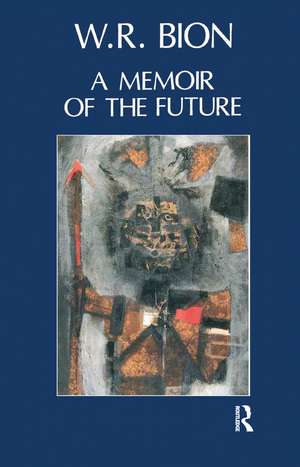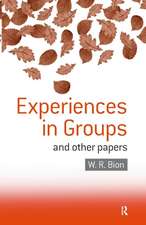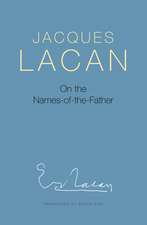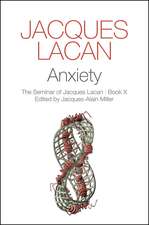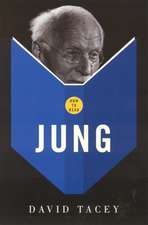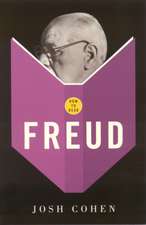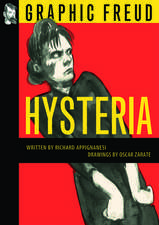A Memoir of the Future
Autor Wilfred R. Bionen Limba Engleză Hardback – 31 iul 2019
| Toate formatele și edițiile | Preț | Express |
|---|---|---|
| Paperback (1) | 515.95 lei 43-57 zile | |
| Taylor & Francis – 31 dec 1990 | 515.95 lei 43-57 zile | |
| Hardback (1) | 946.19 lei 22-36 zile | +43.24 lei 6-12 zile |
| Taylor & Francis – 31 iul 2019 | 946.19 lei 22-36 zile | +43.24 lei 6-12 zile |
Preț: 946.19 lei
Preț vechi: 995.99 lei
-5% Nou
181.06€ • 189.51$ • 150.69£
Carte disponibilă
Livrare economică 10-24 martie
Livrare express 22-28 februarie pentru 53.23 lei
Specificații
ISBN-10: 0367323885
Pagini: 688
Dimensiuni: 138 x 216 x 40 mm
Greutate: 1.05 kg
Ediția:1
Editura: Taylor & Francis
Colecția Routledge
Locul publicării:Oxford, United Kingdom
Public țintă
Professional Practice & DevelopmentCuprins
Descriere
Notă biografică
Wilfred Ruprecht Bion DSO (8 September 1897 - 8 November 1979) was a British psychoanalyst. Bion was born in India in the days of the British Raj, and was sent to school in England at the age of eight. He left school just before he was eighteen to join the Tank Corps and served in France where he was awarded the DSO, the Legion of Honour, and was mentioned in dispatches. After the war he read History at the Queen's College, Oxford, studied medicine at University College, London, and then turned to psycho-analysis to which he devoted the remaining fifty years of his life, the last twelve being spent in California.A pioneer in group dynamics, he was associated with the 'Tavistock group', the group of pioneering psychologists that founded the Tavistock Institute in 1946 on the basis of their shared wartime experiences. He later wrote the influential 'Experiences in Groups', in 1961, an important guide for the group psychotherapy and encounter group movements beginning in the 1960s, and which quickly became a touchstone work for applications of group theory in a wide variety of fields.Abandoning his work in the field of group psychotherapy in favor of psychoanalytic practice, he subsequently rose to the position of Director of the London Clinic of Psycho-Analysis (1956-62) and President of the British Psycho-Analytical Society (1962-65). From 1968 he worked In Los Angeles, returning to England two months before his death in 1979.Bion's training included an analysis with Melanie Klein and he was was a potent and original contributor to psychoanalysis. He was one of the first to analyse patients in psychotic states using an unmodified analytic technique; he extended existing theories of projective processes and developed new conceptual tools. The degree of collaboration between Hanna Segal, Wilfred Bion and Herbert Rosenfeld in their work with psychotic patients during the late 1950s, and their discussions with Melanie Klein at the time, means that it is not always possible to distinguish their exact individual contributions to the developing theory of splitting, projective identification, unconscious phantasy and the use of countertransference. These three pioneering analysts not only sustained Klein's clinical and theoretical approach, but deepened and expanded it, and his work continues to be found clinically relevant today, in the UK, North and South America, and across the world.His writings include 'Learning From Experience' (1962), 'Elements of Psychoanalysis' (1963), 'Transformations' (1965), 'Attention and Interpretation' (1970), 'Two Papers: The Grid and Caesura' (1977) and two posthumously published volumes of autobiography: 'The Long Weekend' (1982) and 'All My Sins Remembered' (1985).
